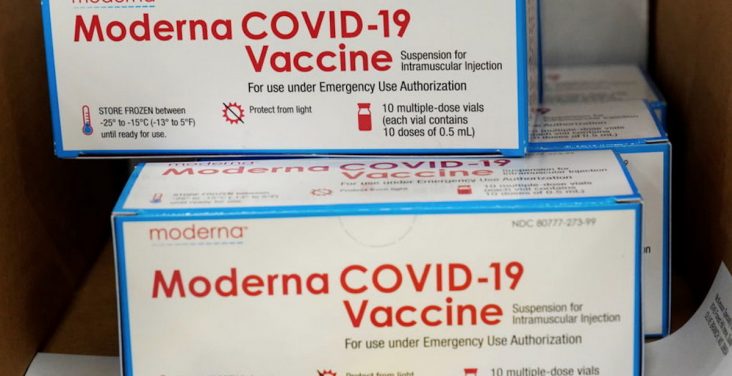Worker incentives, ‘community’ conversations part of Gov. Hutchinson’s new plan to boost vaccinations
by July 6, 2021 3:13 pm 739 views

Gov. Asa Hutchinson said Tuesday (July 6) the state was “winning the (COVID) battle in April … (but) we are losing ground in July.” He called on employers to do more to encourage employees to receive the vaccine as part of a two-prong strategy to boost the state’s dismal vaccination rate.
During Tuesday’s press conference, his comments followed data from the Arkansas Department of Health (ADH) showing 55 more COVID hospitalizations in the previous 24 hours, bringing the total hospitalized to 416. Gov. Hutchinson said the daily increase is “the largest increase in hospitalizations since January” and the most significant increase in hospitalizations since the rollout of the vaccine.
Tuesday’s report also showed 4,645 active cases, down 107 in the previous 24 hours, and a rise of 270 new cases in the cumulative count, which reached 352,095. The number of hospitalized COVID patients requiring ventilators rose by 10 to 76. Arkansas’ previous surge peaked in January with a record 4,304 new cases reported on Jan. 1, a record 27,822 active cases posted Jan. 9, and a record 1,371 hospitalizations reported on Jan. 11.
According to the ADH, the number of fully immunized Arkansans is 1,003,703 as of Tuesday, with 225,525 partially immunized. Just under 35% of all Arkansans are fully vaccinated, well below the national rate of 48%. Arkansas is one of the least vaccinated states, ahead of only Alabama (33%) and Mississippi (30%).
THE DELTA PROBLEM
Gov. Hutchinson and Arkansas Secretary of Health Dr. Jose Romero said the more transmissible and more virulent COVID Delta variant is now responsible for most new cases and is a big reason for the recent rise in active cases and hospitalizations. Romero said the Delta variant is 30 to 50 times more transmissible than the original COVID virus and puts at risk children younger than 12 and cannot receive a vaccine.
“The Delta variant is penetrating our childhood population. We cannot vaccinate our children at this point because we do not have a vaccine for them. All we have to protect them is to protect them by immunizing yourself and having a cocoon around them that doesn’t allow the virus to reach them,” Romero said, adding that protecting children is yet another reason to get fully vaccinated.
Romero also said those receiving the two-dose Moderna and Pfizer vaccines are only 30% to 35% protected if they received only one dose. The governor noted national reporting in which about 99% of those hospitalized with COVID are unvaccinated.
“If you don’t want to go to the hospital, get vaccinated,” he said.
According to ADH data, the average age is declining among those in Arkansas being diagnosed with COVID and dying from the virus. The average age of those infected in November 2020 was 63.6 and fell to 54.7 in June. The average age of COVID deaths in November was 78.3, falling to 66.1 in June. Gov. Hutchinson said the average ages began to drop when vaccines were administered in nursing homes and other places with elderly populations.
NEW STRATEGIES
Gov. Hutchinson announced two “strategies” Tuesday to help address the state’s low vaccination rate. The first is to ask employers to do more to encourage employees to get vaccinated. He said many state employers helped with early vaccine rollouts, and now he is asking them to again support the vaccine push.
“We are asking employers in our state to take a leadership role in encouraging vaccines in the workplace. … First of all, I am asking the employers in Arkansas to give paid time off for workers to get vaccinated,” he said, adding that the second ask of employers is to do more to educate against misinformation and other sources of vaccine hesitancy.
Randy Zook, CEO of the Arkansas State Chamber of Commerce and Associated Industries of Arkansas, said many large employers implemented various vaccine incentive plans. He also noted that the American Relief Plan, pushed by President Joe Biden and eventually passed by Congress, provides businesses with tax credits to help cover costs related to encouraging employees to get vaccinated.
“So we are encouraging all employers, not just the largest ones … to step back and put some extra effort in this push to get more of their employees vaccinated,” Zook said.
A second strategy is to take the vaccine message to the people in what the governor called “Community Covid Conversations.” The first event is in Cabot at 6 p.m., July 8, at the Veterans Park Events Center. The goals of the conversations include listening and responding to questions and concerns and gathering a panel of healthcare and community leaders in each city to talk about the need for the vaccine and vaccine access.
In response to a media question about “beating this drum for a long time” in pushing for more vaccinations, Gov. Hutchinson said it could be frustrating. Still, as the state leader, he has a responsibility to keep pushing the message.
